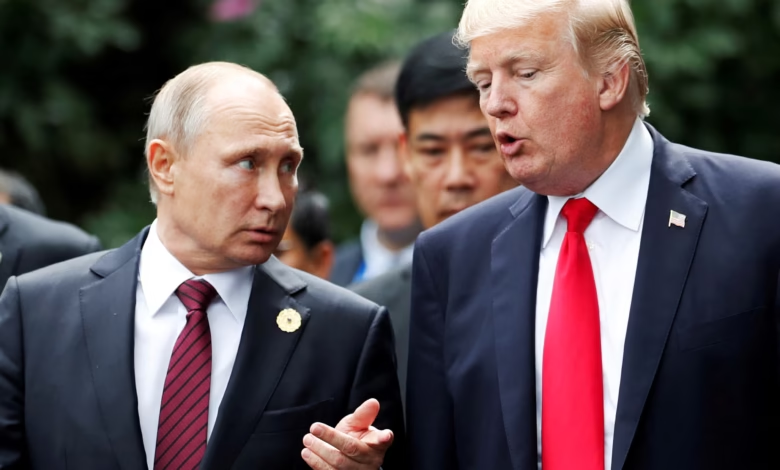
Introduction: Why the Trump-Putin Relationship Matters
trump putin In the world of modern geopolitics, few relationships have sparked more debate, headlines, and speculation than the one between former U.S. President Donald trump putin and Russian President Vladimir Putin. Whether it’s about alleged election meddling, flattery-laced summits, or policy decisions that raised eyebrows across the globe, the Trump-Putin dynamic has become one of the defining features of 21st-century political discourse.
Why do people care so much about this relationship? Well, it’s not just about two powerful men. It’s about how their connection could influence everything from democracy and international law to cyber security and global alliances. trump putin, a businessman-turned-president with a knack for defying political norms, and Putin, a former KGB agent turned authoritarian leader—this is a duo that commands attention on the global stage.
The controversy, fascination, and mystery surrounding their interactions have fueled countless articles, investigations, and theories. And despite the media frenzy, there’s still a lot people don’t fully understand about what really happened, what was said behind closed doors, and what the long-term effects might be.
The Early Days: trump putin Admiration for Putin

From the very beginning of trump putin political career, he made it clear that he admired Vladimir Putin. Even during his 2016 campaign, Trump frequently praised Putin’s leadership style, calling him a “strong leader” compared to then-President Barack Obama. These remarks sparked a media storm and led many to question why a U.S. presidential candidate would so openly admire a rival nation’s authoritarian leader.
What stood out was how trump putin repeatedly emphasized his desire to “get along with Russia.” He framed it as a practical strategy rather than a political statement. According to Trump, better relations with Moscow would lead to improved cooperation on global issues like terrorism, North Korea, and energy.
But critics weren’t buying it. To them, trump putin praise of Putin went beyond diplomacy and into dangerous territory. Was it just flattery, or was there something deeper going on? The seeds of suspicion were planted, and it didn’t take long before investigations began.
Election Interference and the Russia Investigation
The real turning point in the trump putin narrative came in 2016 when U.S. intelligence agencies concluded that Russia had interfered in the presidential election to help Donald Trump win. Suddenly, the friendly tone between the two leaders wasn’t just unusual—it was potentially explosive.
This led to the infamous investigation by Special Counsel Robert Mueller, whose job was to determine if there had been coordination between the trump putin campaign and the Russian government. After two years, the Mueller Report concluded that while there was no definitive evidence of a criminal conspiracy, Russia had indeed interfered, and the Trump campaign had welcomed the help.
The findings were complicated. On one hand, it cleared trump putin of collusion charges. On the other hand, it outlined numerous contacts between his campaign and Russian operatives and didn’t exonerate him from obstruction of justice. The political fallout was intense. Trump repeatedly called the investigation a “witch hunt,” while his opponents believed it was evidence of compromised loyalty.
The Russia investigation dominated U.S. political discourse for years and significantly damaged public trust—not just in trump putin intentions, but in the integrity of democratic institutions themselves.
The Helsinki Summit: A Defining Moment
Perhaps the most iconic—and controversial—moment in the trump putin saga came during their July 2018 summit in Helsinki, Finland. After a private one-on-one meeting, Trump held a joint press conference with Putin where he famously said he saw “no reason why it would be Russia” that interfered in the election—despite U.S. intelligence findings.
The backlash was immediate and intense. Even members of trump putin own party criticized him for appearing to side with a foreign adversary over American intelligence agencies. The moment was seen by many as the lowest point in Trump’s foreign policy and a clear example of him giving Putin too much ground.
trump putin later tried to walk back the statement, saying he misspoke. But the damage was done. The Helsinki summit became a symbol of the Trump-Putin relationship—opaque, contentious, and bewildering to political analysts across the world.
Policy Decisions That Favored Russia?
During trump putin presidency, several policy moves were interpreted by critics as being favorable to Russia. For example, Trump pushed for Russia’s return to the G7 group of nations (making it the G8 again), despite Russia being ousted after annexing Crimea. He also frequently questioned the value of NATO, an alliance that Putin has historically viewed as a threat to Russian influence.
Additionally, Trump was slow to impose sanctions on Russia, even when prompted by Congress. His administration eventually did apply penalties, but the delay raised eyebrows. On top of that, there was the controversial decision to withdraw U.S. troops from Syria, which many believed created a power vacuum Russia was quick to fill.
Supporters of Trump argue that his administration was actually tough on Russia in many areas, citing sanctions, military aid to Ukraine, and expulsion of Russian diplomats. But the president’s rhetoric often told a different story—one that was friendlier and more forgiving of Putin than past U.S. presidents had ever been.
After the Presidency: Trump and Putin in Retrospect
Since leaving office, Trump has continued to comment on Vladimir Putin, sometimes even praising him while criticizing current U.S. leadership. For instance, during the 2022 Russian invasion of Ukraine, Trump initially called Putin “smart” for the way he orchestrated the build-up to war. That statement caused another wave of criticism, as many felt it downplayed the severity of Putin’s actions.
Trump later clarified that he did not support the invasion, but the damage to his image was already done. The association between Trump and Putin, even after his presidency, remains a sticking point for his critics and a rallying cry for his supporters who see it as overblown.
At the same time, Putin has remained relatively silent about Trump since 2020, though it’s clear the Russian government preferred his administration over Biden’s more confrontational stance. Whether that silence is strategic or dismissive is still up for debate.
The Legacy: What Does It All Mean?
The Trump-Putin relationship will likely go down as one of the most scrutinized diplomatic interactions in modern history. For some, it’s a story of failed leadership and compromised values. For others, it’s an example of bold diplomacy that was misunderstood by the establishment.
What’s undeniable is that it has reshaped how Americans view foreign policy, the role of the president, and the power of propaganda. It also highlighted the vulnerabilities of democratic systems in the digital age—where information warfare can be just as damaging as traditional conflict.
As Trump continues to remain a key political figure and even eye another presidential run, questions about his relationship with Putin are sure to resurface. Whether they were allies, political chess players, or something else entirely, the Trump-Putin dynamic will remain a subject of debate for years to come.
Conclusion: More Than Just a Political Drama
At the end of the day, the connection between Donald Trump and Vladimir Putin is more than just tabloid fodder or partisan talking points. It’s a real and ongoing geopolitical narrative that affects international relations, cybersecurity, and the very foundation of democratic governance.
Whether history views it as a strange bromance, a political scandal, or a misunderstood attempt at diplomacy remains to be seen. What’s clear, though, is that the Trump-Putin relationship changed the political landscape—and it’s far from over.



